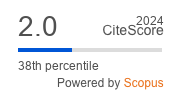Toxic Cardiomyopathy in a Young Patient Treated for Her2-Positive Early Breast Cancer: Case Report and Literature Review
DOI:
https://doi.org/10.5644/ama2006-124.417Keywords:
Breast Cancer, Anthracyclines, Trastuzumab, Toxic CardiomyopathyAbstract
Objective. We present the case of toxic cardiomyopathy in a healthy thirty-eight-year-old female patient treated for Her2-positive early breast cancer.
Case Report. During the neoadjuvant treatment, the patient received four cycles of AC regimen and four cycles of docetaxel in combination with trastuzumab biosimilar. Two days after she received the ninth dose of trastuzumab biosimilar, she reported feebleness, palpitation, and dyspnoea. A heart ultrasound was performed and was normal without changes in the ejection fraction (EF) compared to previous checks. Three days later she reports worsening of her symptoms that were highly suggestive of heart failure. A cardiologist was consulted who insisted that the patient’s symptoms were the consequence of the disease progression. A CT scan showed signs of heart failure. A heart ultrasound was done and the EF dropped to 30%. Drainage of the right pleural cavity was performed and pharmacotherapy for heart failure was started. The treatment led to clinical improvement, but eighteen months later EF is still not back to normal.
Conclusion. This is a rare case of toxic cardiomyopathy in a young, previously healthy, patient who received anthracyclines followed by trastuzumab biosimilar in combination with taxanes. All the medications this patient received are potentially cardiotoxic. However, the overall presentation is not typical for any of these medications since the patient presented with symptoms and signs of heart failure with significant dilatation of the right atrium, which persists eighteen months after its onset, with only a small increase in the EF. There is also a possibility that the antineoplastic therapy the patient received only facilitated dilatative cardiomyopathy, while the main causative factor was intrinsic or extrinsic.
Downloads
Published
Issue
Section
License
Copyright (c) 2023 Amina Hadžibeganović, Dijana Koprić

This work is licensed under a Creative Commons Attribution-NonCommercial 4.0 International License.





